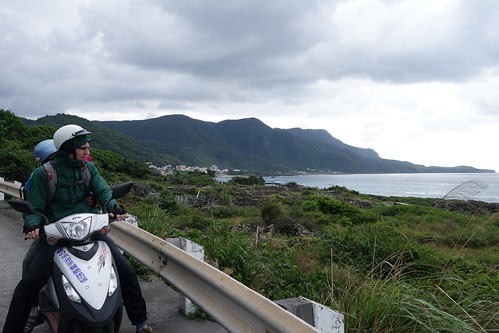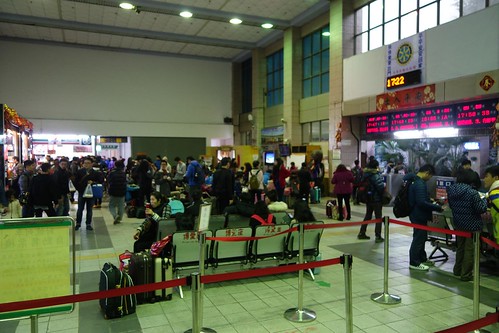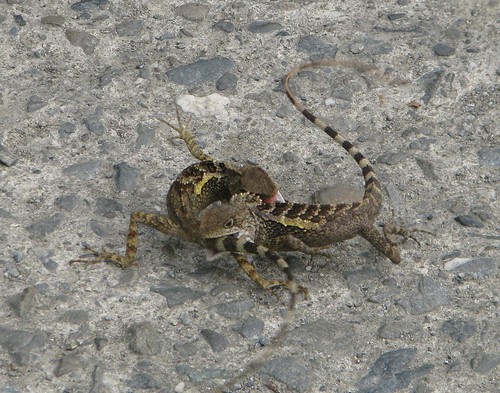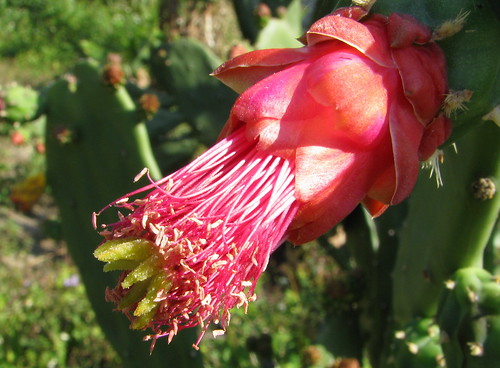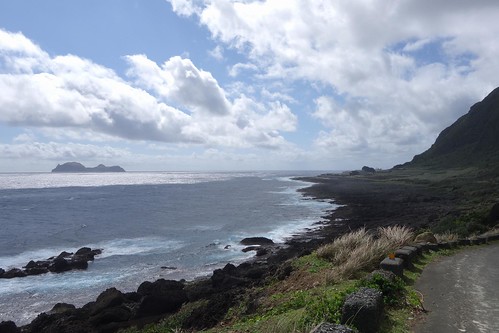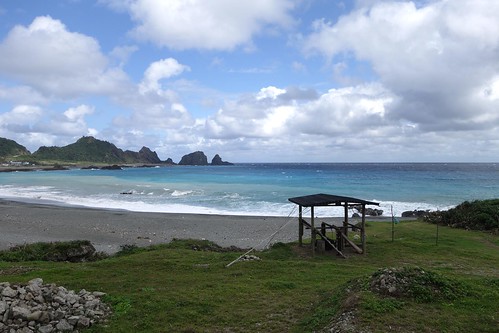I often complain about how China specialists just don't get Taiwan. Here is another example of it. taiwansecurity.org published an interview with longtime, well-known China specialist Andrew Nathan last week about Beijing and Taiwan. He replied to one question on the Sunflowers.
I think that they had already learned that to settle what they call “the Taiwan problem” peacefully, which is their goal, they are going to have to win over public opinion in Taiwan—the people, the voters. They knew that. But to me, the lesson of the Sunflower Movement is—but I don’t know if Beijing understands the lesson the way I do—is that you can’t win over public opinion strictly with economic benefits. I think Beijing’s strategy had been that we will take care of the Taiwan economy by opening up our markets, by giving privileges to Taiwanese investors and others, and sending tourists, and so forth, and the Taiwan people will understand that their economic interest is in the same basket with us. It turns out that the Taiwan people are instead resentful of growing economic dependence on the mainland. They’re not very trusting of how that economic influence will be used by Beijing. The Chinese leaders are still in some ways Marxist, they still believe in economic materialism, the idea that people will respond to economic incentives. They seem to have a hard time getting a grip on the idea of identity and self-dignity as an important factor that people sometimes fight for.We just had this problem with Denny Roy, which I commented on below. Once again we see the false idea that Beijing offers those generous economic incentives. But everyone in Taiwan can see that (1) Beijing is not offering generous terms (2) it is only doing econ agreements because it wants to hollow out Taiwan's economy because of (3) it wants to bind Taiwan to China and annex it while destroying the economic basis for Taiwan's independence. The result of the China engagement has not been positive economic benefits for Taiwan, but stagnating wages, reduced democracy, increased smuggling and gang activity, and so on.
China specialists need to face this fact squarely: there are no generous economic benefits from Taiwan's economic involvement with China. That golden age passed in 2008, six years ago. Instead, the people of Taiwan experience assaults on their independence and democracy on one side and the hollowing out of their economy on the other, along with China's continued interference in FTAs and other international agreements. They know that the benefits of the trade relations go to a few big businessmen. They know the tourism profits are taken by a handful of Hong Kong-based tour agencies, while the locals get low paying service jobs while Chinese tourist facilities destroy local lands and the tourists themselves overrun whatever place they go into, driving away locals. As Ian Rowen has trenchantly observed, tourism is a territorial strategy of China in Taiwan. They know that China has special zones on its coast to poach Taiwan's agricultural technology. The public here is well aware that everything the public was told about China by the Ma Administration has turned out to be a lie. You'd think the message would have gotten out by now to the China specialists who study this stuff... no wait, why do I think that?
The whole idea of "generous economic benefits" is Chinese propaganda. Stop forwarding it, scholarly folks.
As a friend of mine commented so much better than I could on Nathan's remarks about China's authoritarian government and Taiwan's shifting democracy:
LOL. Poor China. they must be having fits according to Nathan because of that protean democratic process. They don't know who's in charge in Taiwan; or for that matter, the US, the UK, France, Germany, Japan, Korea, India, Australia, Canada...Nathan also answers the question about what if China became democratic.
If Beijing became a democracy in some authentic sense, I believe that the problem of Taiwan’s relationship to the PRC would then be much easier to resolve peacefully. And I guess I gave in my earlier remarks already the logic of why I think so. The Taiwan people do have an economic advantage in close relations with China, but they don’t want to make that into a political relationship because they don’t trust the authoritarian regime. But if China had a truly democratic regime—I’m not saying a U.S.-type regime or any particular format, but something that was really democratic with political freedom and political security—then I think the Taiwan people would gradually grow to trust the government in Beijing and they would understand that this mainland China political entity has a security interest in an arrangement where both their own and Taiwan’s security will be guaranteed, and we need to provide that to them, and it’s not going to be a threat to us. That kind of a thought would grow in Taiwan.There's already poll data on this. As Emerson Niu's survey
And then I think on the Chinese side, they would also be willing to negotiate with the Taiwanese for their interests in more autonomy and they could—over the years, many different formulas have been vetted about confederation, and so on—they could probably solve the problem.
Q4. If only small political, economic, and social disparity exists between Mainland China and Taiwan, do you favor or not favor Taiwan unifying with China?...and that data is years out of date. Things are even stronger now. Why do people in Taiwan reject being annexed to China? The reason is simple: they have their own identity, the Taiwan identity. China has a different identity (see Don Rogers' work on the young). Authoritarianism is an issue, but even if China became democratic, the identity issues that separate the two sides would remain (see Scotland, Catalonia, Slovakia, etc). Taiwanese would see a democratic, non-threatening China as "at last! we can be free!" and that the peaceful resolution would result in an independent Taiwan, which most everyone here wants to see.
Not Favor: 56.4%
Favor: 36.4%
NA: 7.2%
In any case no one in Taiwan would imagine that a democratic China would keep its word in some kind of security treaty. The Taiwanese would much rather be security linked to Japan and the US, two nations that don't want to annex the island. Nothing in the basic equation of the Taiwan-China-Japan-US quadrilateral would change.
I'm just curious about people who think that China will be less willing to use force if it is democratic. The history of the western democracies does not make one sanguine in this regard....
Finally, Nathan remarks...
And then I think on the Chinese side, they would also be willing to negotiate with the Taiwanese for their interests in more autonomy and they could—over the years, many different formulas have been vetted about confederation, and so on—they could probably solve the problem.How kind of Beijing to grant us the status of an autonomous satrapy and refrain from murdering us wholesale! Never mind that Taiwan would be negotiating for less autonomy than it has now (and why would it do that?). This remark: "they could probably solve the problem" elides so much. The problem is not between Taiwan and China as something that could "be resolved" by the two sides sliding closer to each other. Taiwan is not the cause of the problem, and thus, nothing it can do will resolve it, save surrender.
The problem is Beijing's desire to annex Taiwan. Only Beijing can resolve that problem.
UPDATE: Some good comments below.
__________________
Daily Links:
- Gout is really common in Taiwan. Watch your diet.
- Why the US would defeat China in a war. That's not the issue. The issue is when China will produce someone who can persuade the government that war with the US and Japan is a good idea. Once that occurs, the government will rationalize away the weight of metal against it.
- Speaker of the Legislature Wang Jin-pyng denies that he will run for presidency
- Taiwan's quest for international space, Bonnie Glaser on video.
- Yoniguni islanders vote for radar, troops. Yoniguni is near Taiwan and this radar will be useful for Taiwan's security.
- TaiwanTake on the Hung candidacy in Taichung. Another blog you should be putting on your blog roll.
- Hong Kongers increasingly want to move to Taiwan.
- A review of the Sunflowers. Ok, with the possibility of third-party emergence identified.
- Can Taiwanese fishing boats carry armed guards?
- MUST READ: J Michael brutally takes down KMT spokesman's Charles Chen's defense of the KMT in Foreign Policy.
- SPECIAL: Ian Rowen on the Sunflower Occupation in the Journal of Asian Studies
- EVENT: Chthonic lead singer, activist, and now politician Freddy Lim will be speaking at the Taichung speakers corner on Mar 1, 2:30. Facebook page
[Taiwan] Don't miss the comments below! And check out my blog and its sidebars for events, links to previous posts and picture posts, and scores of links to other Taiwan blogs and forums!










